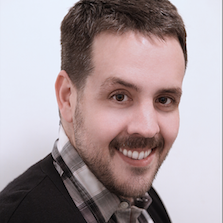Branch
Select your branch
Meet the IFNY Team: Dr. Lander Egaña, Operations Manager
 IFNY wants everyone to know our amazing members!
IFNY wants everyone to know our amazing members!
Dr. Lander Egana-Gorrono is our Operations Manager, in charge of all things related to the Imagine IF! competition. He is a postdoctoral fellow at NYU Langone Medical Center in New York City. His research involves the study of macrophage biology in the context of cardiometabolic diseases such as atherosclerosis or diabetes.
Before joining NYU, Lander obtained his Ph.D in Biomedicine at the University of Barcelona, Spain, for his discoveries on host genetic factors involved in metabolic complications in HIV-infected patients. Then, he moved to Albert Einstein College of Medicine, New York, to begin his postdoctoral career.
Lander has received training in science and innovation management and he has been part of the Offices of Biotechnology and Business Development at Einstein. He believes in the importance of building bridges between academic inventions and early-stage investors in order to benefit our society
Five facts about Lander:
1. What sorts of challenges are you dealing with right now?
We are currently organizing and getting ready for the announcement of the local Innovation Forum-New York pre-acceleration competition for healthcare science ventures: IMAGINE IF! Stay tuned!
2. What scientific technology are you most excited about and why?
I am passionate about any scientific achievement that can be transferred from the lab to our society, improving our lives: new medicines, innovative diagnostic tools and therapeutic approaches.
3. At which store would you like to max-out your credit card?
Plane tickets to travel the world and get to know new cities and cultures!
4. What’s the best advice you’ve ever heard?
Where there’s a will there’s a way
5. What’s the coolest thing you’re working on right now?
My current research focuses on the study of macrophage biology in cardiometabolic settings such as atherosclerosis or diabetes. It is extremely exciting to be involved in the understanding of specific signaling pathways that lead to the malfunctioning of these cells in order to target and combat one of the leading causes of death worldwide.


